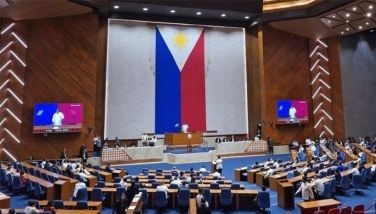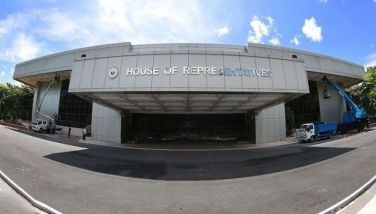Tourism by VAT refund
In a report made by the World Economic Forum in May 2024, it is expected that the global tourism industry will continue recovering from the lows of the COVID-19 pandemic and surpass pre-pandemic levels due to demand driven by people’s pent-up desire to travel following the lifting of restrictions.
The report also highlighted that high-income economies like the United States, Spain, Japan, France and Australia have shown significant recovery in their tourism sectors, as these countries offer more favorable conditions for travel and tourism development. However, for other countries like the Philippines, challenges still remain in trying to reach pre-pandemic tourism levels and growth.
In an effort to aid the tourism sector, Senate Bill 2415 was introduced by lawmakers. The bill was approved on Sept. 23, 2024, on its third and final reading. Senate Bill 2415 proposes to introduce a new section, Section 112-A, to the National Internal Revenue Code, as amended, which will offer a value added tax (VAT) refund to tourists who are non-resident foreign passport holders. Under this section, a tourist would be eligible for a VAT refund on locally purchased goods, which may be made either electronically or in cash, provided that the following requirements are met:
The goods are purchased in person by the tourist in duly accredited stores;
The goods are taken out of the Philippines by the tourist within 60 days from the date of purchase; and
The value of goods purchased per transaction is at least P3,000, provided that this threshold shall be subject to review and adjustment every three years by the Secretary of Finance, upon recommendation of the Commissioner of Internal Revenue.
For the implementation of the VAT refund, the bill assigns responsibility to the Department of Finance (DOF) to engage one or more reputable, globally recognized and experienced VAT refund operators that would provide end-to-end solutions to the government for establishing a VAT refund system for tourists. The DOF is also tasked with creating the implementing rules and regulations if the bill is passed into law.
In pushing for this VAT refund mechanism, lawmakers hope to generate income and create additional employment opportunities.
According to the National Economic Development Authority, the proposed VAT measure for tourists is expected to generate between P3.3 billion and P5.7 billion annually from 2024 to 2028 and to create between 4,400 and 7,100 jobs per year during the same period.
These projected benefits hinge on lawmakers’ hope that the VAT refund will encourage tourists to purchase local goods, as shopping has always been a key driver of tourist interest. Moreover, they envision the VAT refund mechanism as a potential marketing tool for the Philippines’ tourism sector, with the potential to drive the economy forward.
Although well-intentioned, this bill is still met with skepticism, as there are concerns that it may result in revenue leakage.
The anticipated increase in the purchase of local goods may not be sufficient to offset the cost of implementing the scheme, and the Philippines may end up losing more revenue.
Further, there is a suggestion that the government should instead focus on improving the tourist experience and infrastructure, which could be achieved through proper funding for such projects.
The contrasting points on the proposed VAT measure illustrate both pros and cons. Nonetheless, it is worth noting that neighboring countries, such as Thailand, Malaysia, Vietnam, Singapore and Indonesia, have VAT refund schemes for tourists. Tourists in these countries are encouraged to keep their receipts for eligible purchases and can present them at the airport refund center to obtain the refund. This indicates that a working VAT refund system is possible with effective enforcement.
The effectiveness of the proposed VAT refund scheme in raising national revenue will heavily depend on its implementation. Currently, the bill still has areas needing clarification, particularly the accreditation of stores, which was not discussed in the bill. It is up to the DOF to address these gaps and devise an effective accreditation system for stores that encourages participation and promotes tax compliance. If this measure is passed into law, we must wait and see if the tax reform delivers on its promise and stimulates tourism through the VAT refund.
* * *
Anne Christelle Santiago is a supervisor in the Tax Group of KPMG in the Philippines (R.G. Manabat & Co.), a Philippine partnership and a member firm of the KPMG global organization of independent member firms affiliated with KPMG International Limited, a private English company limited by guarantee. The firm has been recognized as a Tier 1 in Transfer Pricing Practice and in General Corporate Tax Practice by the International Tax Review. For more information, you may reach out to Tax Supervisor Anne Christelle Santiago or Tax Principal Kathleen Saga through ph-kpmgmla@kpmg.com, social media, or visit www.home.kpmg/ph.
- Latest
- Trending





























